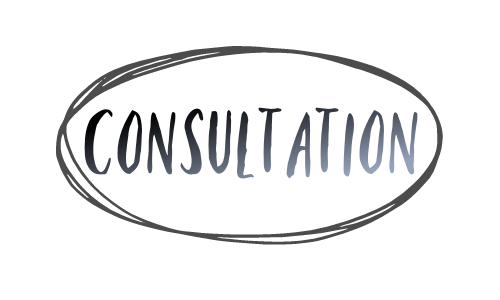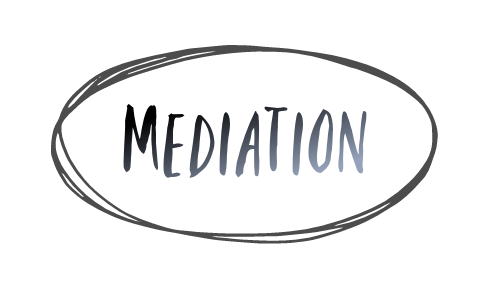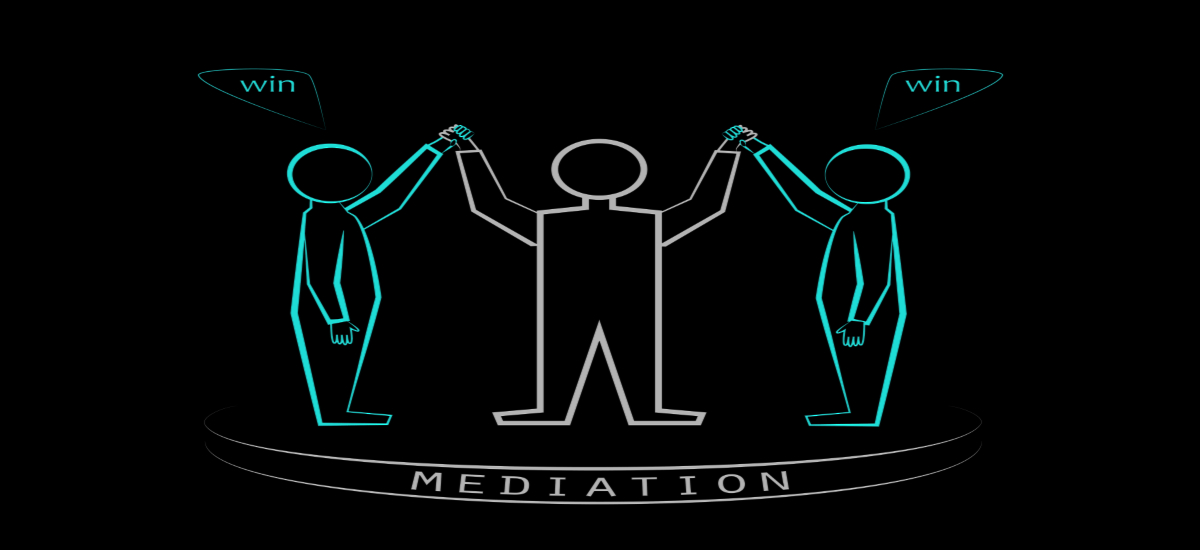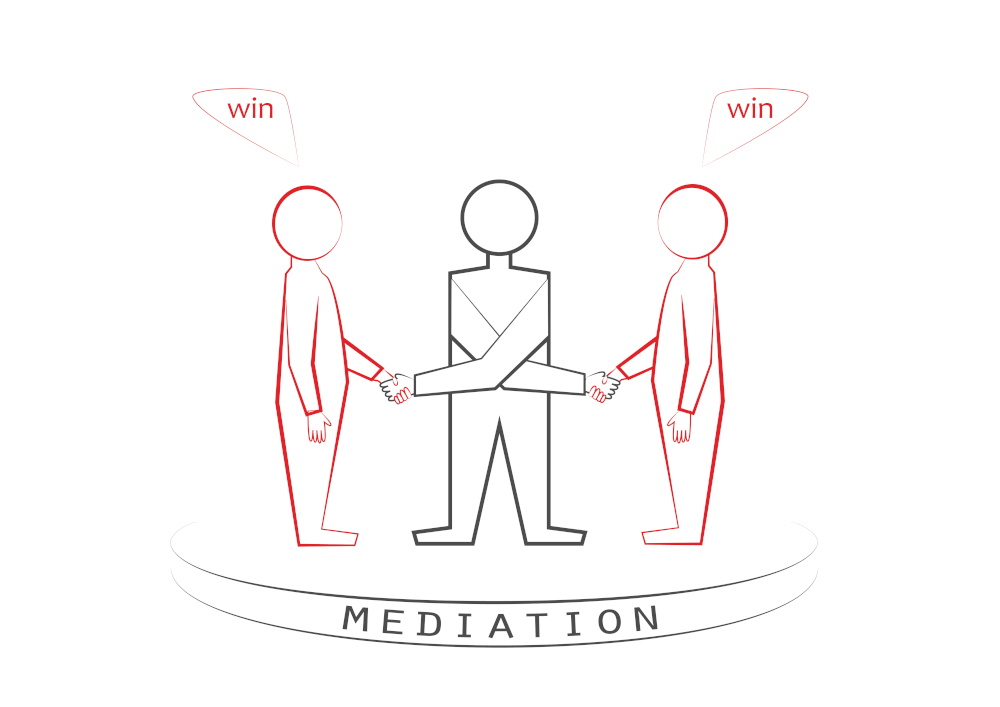Divorce mediation is a form of alternative dispute resolution that is designed to help divorcing couples resolve disputes in a constructive, non-adversarial setting. Unlike traditional divorce proceedings, mediation allows for more flexibility and control over how the couple wants to handle difficult moments and can often lead to better outcomes than if left up to third-party decisions.
Divorce mediation is typically facilitated by an impartial third party, usually a trained, certified mediator who can help both sides explore potential solutions to their conflicts through dialogue. The mediation process typically begins with both parties meeting with the mediator to discuss their respective positions on the subject matter in dispute and then moving on to discuss what they would like to gain from mediation.
During mediation, the mediator helps facilitate open communication between the couple in order to better understand each other's perspectives and interests. This helps create an environment of mutual respect that encourages each individual or family unit to take ownership of their part in resolving the conflict rather than relying solely on third-party decisions which may not accurately reflect either side’s best interests or desired outcomes. Additionally, mediation helps clarify misunderstandings that may have caused or contributed to the dispute so all parties involved can reach an agreement that works for everyone and meets each person's needs.
When it comes to divorce mediation specifically, it allows couples facing divorce or separation the opportunity to come up with mutually beneficial agreements regarding issues such as child custody arrangements, spousal support payments and other matters without having to resorting costly litigation proceedings or lengthy court trials! Furthermore, mediation provides couples with time and space they need so they are able talk openly about what’s important them while creating solutions that meet everyone's needs rather than leaving it up someone else who may not understand the complexities of their particular situation as well as they do!
Mediation also offers couples several advantages when compared with traditional court proceedings including reduced costand time commitment (commonly 6–8 sessions versus several months in court); privacy; less stress; more control over decision making; better problem solving techniques; a more respectful atmosphere; improved communication skills; increased understanding of different perspectives; renewed willingness among all parties involved to find common ground while minimizing any adversarial feelings; greater compliance with court orders once agreed upon by both parties ; clearer understanding of financial matters pertaining to division of assets/liabilities;guidance from outside experts if needed (i.e., financial advisors).
In conclusion, mediation for divorcing couples provides an effective approach for dealing with disagreements during times of transition. By utilizing mediation services when attempting resolve complicated family disputes, individuals can often arrive at favorable outcomes which would otherwise take much longer if left up another form of conflict resolution!
 Pre-Trial Litigation Mediation is a mediation process used to resolve legal disputes between parties without engaging in costly and often lengthy court trials. This mediation process typically occurs after a complaint and answer have been filed in court but before the case goes to trial. During this mediation, an unbiased third party mediator works with both parties to settle the dispute outside of court using alternative dispute resolution (ADR) techniques such as negotiation, mediation or arbitration.
Pre-Trial Litigation Mediation is a mediation process used to resolve legal disputes between parties without engaging in costly and often lengthy court trials. This mediation process typically occurs after a complaint and answer have been filed in court but before the case goes to trial. During this mediation, an unbiased third party mediator works with both parties to settle the dispute outside of court using alternative dispute resolution (ADR) techniques such as negotiation, mediation or arbitration.
The mediation process begins with the parties attending a mediation session with their attorneys and the mediator. The attorneys provide legal advice during the mediation and can help each party more effectively negotiate an agreement that both sides can agree upon. During this session, the mediator will work to identify common ground between both sides while also encouraging them to express their views openly and respectfully.
The mediator acts as an unbiased facilitator, neither offering opinions nor making any suggestions on how to reach a resolution. Instead, they use techniques such as positional bargaining and integrative bargaining to help guide negotiations so that both sides are able to find areas of compromise and craft an acceptable solution that works best for all involved. In some cases, when one side is particularly adamant in its position it may require creative problem-solving from the mediator in order for both sides to move forward productively.
Once an agreement has been reached by all parties involved it is documented into a legally binding contract which outlines all of the terms of settlement agreed upon during mediation. It is important for each party involved to understand exactly what has been agreed upon for it be fully enforceable in court should one of the parties fail to honor their obligations under said agreement.
Pre-Trial Litigation Mediation can be highly effective at resolving conflicts without resorting to costly litigation proceedings or lengthy court trials which could potentially lead nowhere at all if one side chooses not to comply with any resulting decision made by the judge or jury. Furthermore, mediation provides individuals with more control over how they want their case resolved as opposed relying on third party decisions which may not necessarily reflect their best interests nor desired outcome!

We are located in Amarillo, Texas.
At the moment we are only scheduling virtual mediations. We use either Microsoft Teams or Zoom meetings based on the preference of the parties.
To schedule your consultation or mediation today, please, call (806) 230-3579.

Schedule your appointment today. We want to make scheduling easy for you. Below you will see two different types of appointment options, review which is best for you and we will respond back ASAP to discuss details.


WHAT KIND OF APPOINTMENT DO YOU NEED?
Consultation: You may wish to talk to our mediators to decide if High Plains Mediation is a good fit for your case or issue. These meetings are typically 30 minutes to 1 hour depending on your specific needs.
Follow the following 'click here' link allows you to book any of the consultations sessions.
Mediation Session: You may already know that you and your client are seeking a mediation session from High Plains Mediation. We offer three different time durations.*
- 2hr session - these sessions are typically for less complex issues and/or disputes. This session is best used for parties who have expectations of finding a potential dispute resolution without significant disagreement.
- 4hr session - these sessions are best used for moderately complex issues and/or disputes. Typically this amount of time allow both parties to explore their various options for dispute resolution and allows time to reach agreements.
- 8hr session - these full day sessions are used for complex issues and/or disputes that may contain more than one party and/or may contain multiple points of interest that are in conflict. This amount of time allows the parties to thoroughly explore the core issues, resolution options, and potentially reach an agreement. Some complex mediations may require 1 or full days to adequately resolve.
* An additional charge of $500 is charged for each hour beyond scheduled times.
Follow the following 'click here' link allows you to book any of the mediation sessions.

Family mediation is a form of alternative dispute resolution that is designed to help families resolve disputes in a non-adversarial setting. Family mediation is facilitated by an impartial third party, usually a trained, certified mediator, who can help both sides explore potential solutions to their conflicts through dialogue. The mediation process typically starts with both parties meeting with the mediator to discuss their respective positions on the subject matter in dispute.
During mediation, the mediator helps facilitate open discussion between the parties involved in order to better understand their perspectives and interests. This helps create an environment of mutual respect that encourages each individual or family unit to take ownership of their part in resolving the conflict rather than relying solely on third-party decisions which may not accurately reflect either side’s best interests or desired outcomes. Additionally, mediation helps clarify misunderstandings and other issues that may have caused or contributed to the dispute in order for all parties involved to reach an agreement that works for everyone and meets each person's needs.
The mediation process can be used for resolving conflicts related to divorce, child support, custody arrangements, visitation rights and other matters related to families separating or transitioning into new settings and relationships. Through mediation, couples can settle property division issues without having to go through costly litigation proceedings or lengthy court trials which can take months or even years before coming to a resolution.
In addition, mediation promotes more open forms of communication which may not always be possible during more formal court hearings where there is less room for negotiation or compromise.
When it comes to divorce proceedings , family mediation allows couples facing divorce or separation the opportunity to reach mutually beneficial agreements regarding issues such as child custody arrangements, spousal support payments and other matters without having to resorting costly litigation proceedings or lengthy court trials! Furthermore, mediation allows couples time and space they need so they are able talk openly about what’s important them while creating solutions that meet everyone’s needs rather than leaving it up someone else who may not understand the intricacies of their particular situation as well as they do!
In conclusion, family mediation provides individuals with more control over how they want these difficult moments resolved as opposed relying on third-party decisions which may not necessarily reflect their best interests nor desired outcome! By utilizing mediation services when attempting resolve complicated family disputes, individuals can often arrive at favorable outcomes which would otherwise take much longer if left up another form of conflict resolution!







